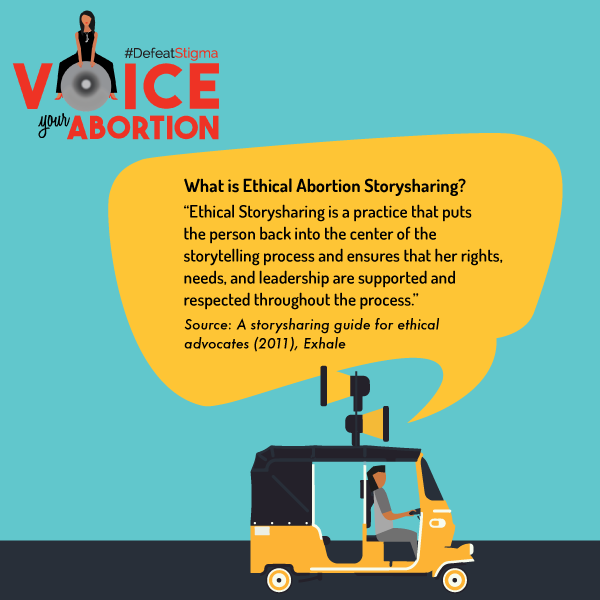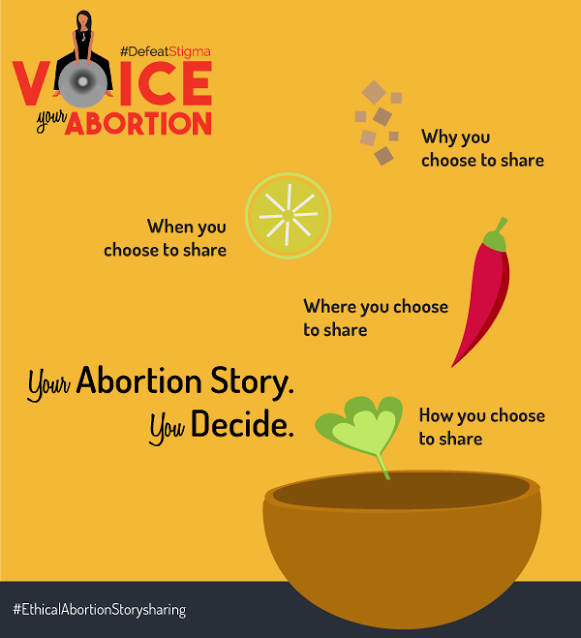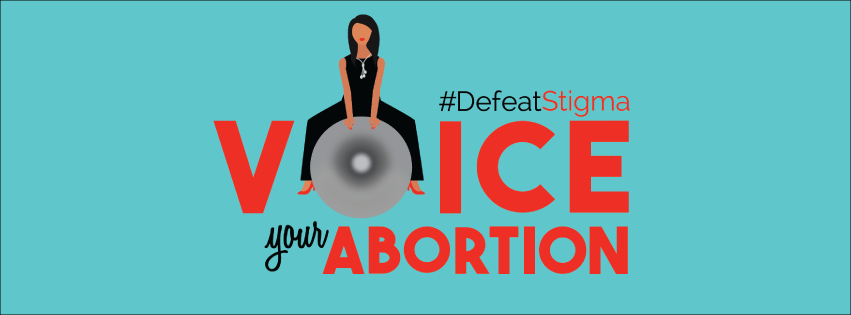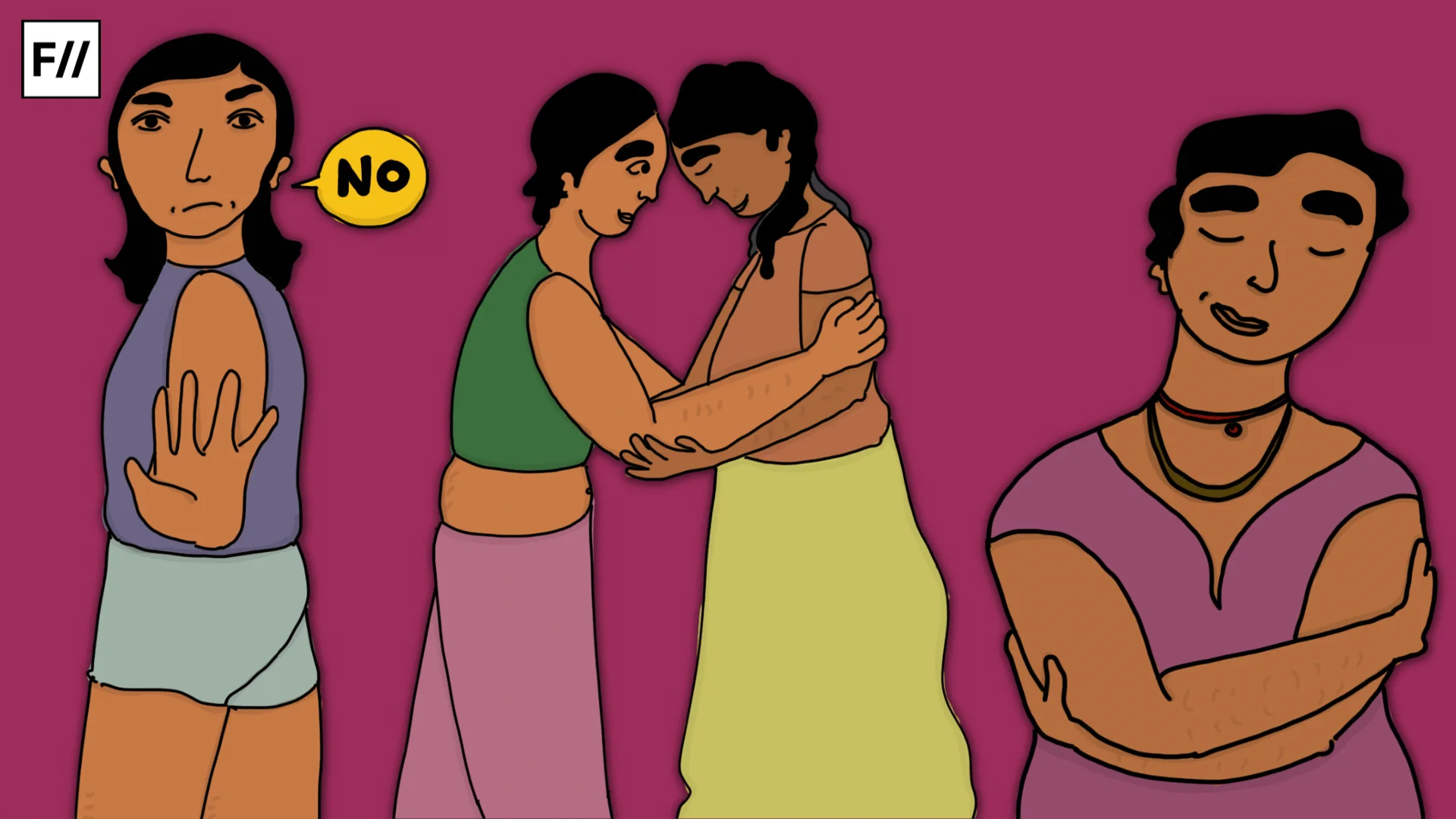Posted by Surabhi Srivastava
Let’s talk about abortion. No, not about the data and statistics. But about women narrating their own abortion stories. Women talking about their lived experiences as they relate to abortion. Women being unapologetically themselves when talking about their abortion. Women sharing their stories, free of any judgment and prejudice. Free of prying eyes and accusatory whispers. Free of any pressure to fit into a neatly packaged and pre-determined storyline. And, free to break free from the social and cultural stigma, shame and silence that envelope any contemporary discussion on abortion. Let’s talk about women simply voicing their abortion. One story at a time.
Abortion storytelling and story-sharing, which was first employed in 1970 by Emily Jane Goodman, as a strategy to challenge the New York state’s abortion ban, has gained momentum globally over the last few years as a powerful way to advance the discourse on abortion rights and reproductive justice. Ms. Goodman and her fellow lawyers, all of whom were women, strongly believed that only women who had experienced the humiliation and suffering associated with unsafe abortions and accessing contraception to prevent an unwanted pregnancy could provide the most compelling evidence and rationale for decriminalizing abortion. These deeply personal narratives and experiences, Ms. Goodman believed, could help bring about a change in popular (mis)understanding that prevailed around abortion at the time as something that was “rare” and “evil”, and instead could make people aware about the fact that abortion is a safe and common medical procedure that any woman may choose to access during her reproductive life.
Storytelling and story-sharing, therefore, became a compelling way for feminists and activists, primarily in the Global North, to de-stigmatize and shatter myths around abortion, and thus enable a shift in the public opinion on abortion to advance reproductive rights. In fact, there are a number of contemporary initiatives, mostly U.S.-based, that are not only using storytelling as a strategy to engender honest and open conversations on abortion, but are also examining storytelling as a subject of academic inquiry and research to help activists, organizations and storytellers utilize and advance effective and compelling storytelling methodologies. Moreover, given that there has also been a corresponding increase in interest and funding to study abortion stigma within the field of social science, it has become imperative for activists and researchers to understand and assess the effectiveness and impact of storytelling as a strategy to reduce abortion stigma and further abortion rights.
In addition to making abortion more relatable as an issue for people, by rendering visible the many diverse experiences and emotions that women may experience when they have an abortion, storytelling has also become a popular medium within the reproductive justice framework because it allows for a more comprehensive and holistic representation of abortion as a complex issue that is embedded with nuances and various intersectionalities. So for instance, storytelling can enable us to bring to light the experiences of women that have traditionally been marginalized even within the abortion rights discourse, like abortion accounts of sex workers, Dalit women, women incarcerated in prison, single women, etc. These experiences and narratives are critical to understanding how access to abortion is profoundly influenced by the multiple identities that women inhabit in their lives, thus also enabling us as activists to discern the web of interlinked oppressive power structures that prevent women from exercising their right to make decisions pertaining to their bodies, sexuality, reproduction and motherhood.

What is Ethical Abortion Storytelling?
However, as abortion storytelling becomes more popular, it also becomes our responsibility, as reproductive justice activists, to be mindful of the pitfalls of public storytelling if it’s not done right. Hence, at the outset we must be cognizant of the fact that storytellers are as important as the stories they share, and therefore, it’s important to ensure that their autonomy, confidentiality and rights are respected, and are not held hostage to any political/activist agendas that might be guiding the storytelling project or campaign. This framework, also referred to as ethical abortion storytelling, thus puts the woman who is sharing her story at the centre of the storytelling process, by allowing her to determine every aspect of the process – why, where, when and how she chooses to share her story, and providing her complete autonomy and control over her narrative and experience. Following an ethical storytelling framework, therefore, ensures that women who choose to share their abortion stories feel committed and invested in the process. Moreover, it also enables them to feel a sense of empowerment and ownership about publicly sharing their very personal experiences and emotions as they relate to abortion.
In India, where abortion rights activism is still in its nascent stages, abortion storytelling can prove to be revolutionary in bringing about a change in the public understanding around abortion, thereby reducing stigma and shame associated with abortion in our society. In fact, it’s very encouraging to see that a beginning has been made, with some online media platforms and campaigns, providing a space for women to share their abortion stories. However, we have a long way to go, especially in terms of providing an enabling space for women from all walks of life, especially those who have been historically marginalized, to feel equally welcomed and empowered to share their abortion stories and experiences, without any shame and fear.

How does it work?
And this process starts with us, as activists, by first acknowledging that there doesn’t exist just one kind of abortion experience or one kind of storyteller. Instead, we ought to be respectful of both storytellers and their stories, and be mindful that their motivations to share their stories may not always align with our goals or motives as abortion rights activists. However, this doesn’t and shouldn’t make their stories any less valid or important, or any less worthy of sharing. On the contrary, the wide array of stories allows us to think of abortion as a multi-dimensional issue that is complex, and one that can’t be dictated by a narrow understanding of abortion as solely an issue of choice. Diverse and distinct abortion experiences, if told ethically, can therefore, pave the way forward for women to regain freedom and control over their bodies and lives, and help us move closer to the goal of achieving reproductive justice for all.
Surabhi Srivastava is a feminist and reproductive justice activist based in Mumbai, India, who works and writes on gender, sexuality and abortion rights issues. She is the founder of Voice Your Abortion project, an ethical storytelling platform that enables women to share their abortion stories and experiences.
All images courtesy Voice Your Abortion.
About the author(s)
Guest Writers are writers who occasionally write on FII.




